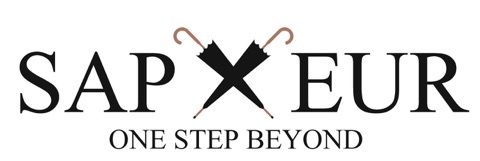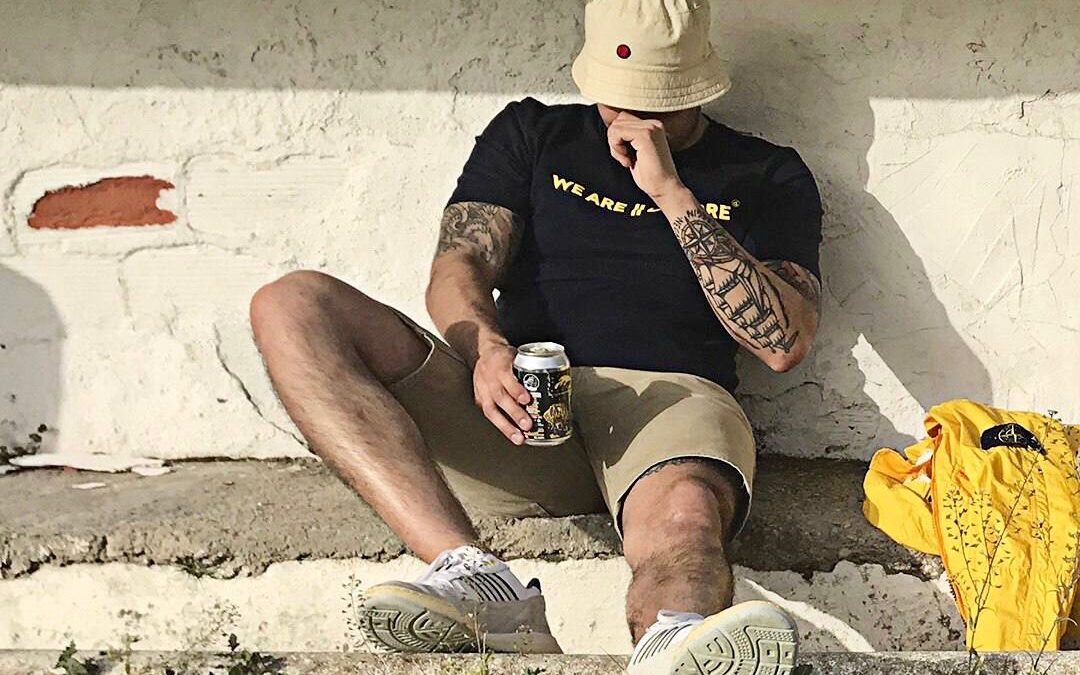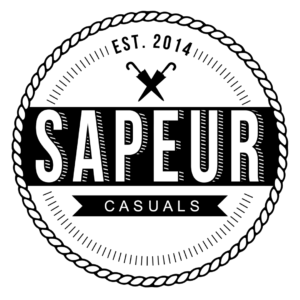Das Baskenland ist eine der ältesten und stärksten Kulturen in Europa. Es umfasst die Region im Norden Spaniens, am Golf von Biskaya, am westlichen Ende der Pyrenäen, an der Grenze zwischen Südfrankreich und Spanien. Die Kultur und die Herkunft unterscheiden sich in vielerlei Hinsicht von der des übrigen Spaniens und von der spanischen Lebensweise. Die Basken sind sehr stolz auf ihre Traditionen, Sprache und Kultur, die jahrelang verboten war auszuüben.
Den älteren Lesern wird der blutige Spanien-ETA-Konflikt bekannt sein, ein bewaffneter und politischer Konflikt von 1959 bis 2011 zwischen Spanien und der Baskischen Nationalen Befreiungsbewegung, die die Unabhängigkeit von Spanien und Frankreich anstrebten. Dies muss leider genannt werden, um die Seele des Baskenlands verstehen zu können, die auch im Fußball lebt und stolz gezeigt wird.
Umgeben von einer privilegierten Landschaft mit bezaubernden alten Dörfern, die im Kontrast zu den alten Industriestädten wie Bilbao stehen, die durch eine emblematische Architektur in postmoderne Städte umgewandelt wurden, gibt es dank einiger großen und kleinen Vereinen eine lebendige baskische Fußballszene und Fankultur.
Wir haben uns mit We are Dotore unterhalten, einem Casual Culture Kollektiv aus Gasteiz, deren Mitglieder es mit dem in der Stadt beheimateten Verein Deportivo Alaves halten. Aufgrund meines persönlichen Faibles für das Baskenland, dass ich bereits das eine oder andere Mal besuchen konnte, war ich sehr neugierig darauf zu erfahren, wie der baskische Einschlag der Casual Culture aussieht. Denn wie man weiß, leben die Basken nach der Vendetta und ich fand, dass es auch für euch ein sehr interessantes Thema sein kann.
Mila esker We are Dotore und viel Spaß mit dem Interview.
— For the interview in English please scroll down —
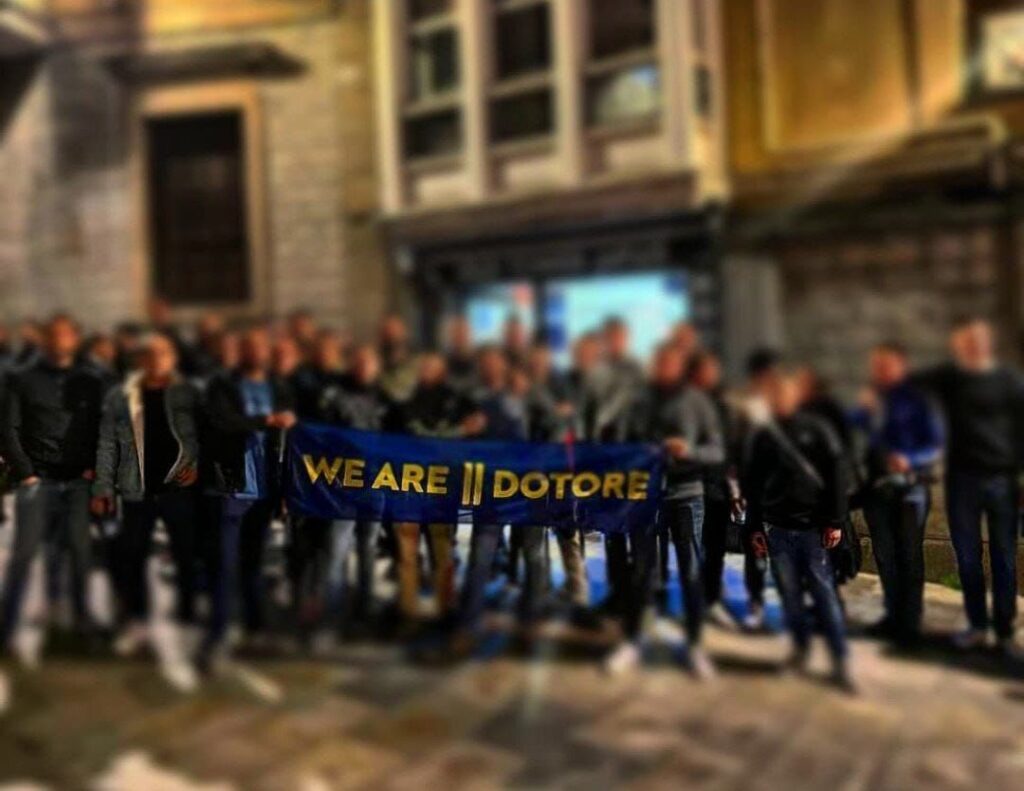
Kaixo! Stellt euch doch einmal bitte kurz unseren Leser vor. Wer seid ihr und was macht ihr?
We are Dotore, Liebhaber von guter Kleidung, Bier, Musik und Ärger aus dem Baskenland. Das ist unsere Art zu leben, und wir versuchen sie in unserem Blog zu vermitteln.
Fangen wir zunächst mit eurem Namen an. Was bedeutet er und warum habt ihr ihn gewählt?
Dotore bedeutet in unserer Sprache Euskera, elegant. Ein besonderes Wort aus einer besonderen Sprache.
Das Baskenland hat eine ganz besondere Geschichte. Wie würdet ihr sie unseren Lesern beschreiben, die euer Heimatland und seine Geschichte nicht kennen?
Wir könnten stundenlang über unsere Geschichte sprechen, aber in Kurzform… Das Baskenland ist ein Gebiet zwischen Spanien und Frankreich, das seit Jahren unterdrückt wird, ein Volk, das sich mit seiner Kultur und seiner Sprache gegen das Undenkbare gewehrt hat. Aus diesem Grund werden wir von unserem Blog aus diesen beiden Tatsachen immer wieder anregen, zurückfordern und verteidigen. Unsere Sprache ist für uns die einzige Verbindung zur Freiheit, deshalb ist es wichtig, dass Euskera die Hauptsprache in unserem Projekt ist.
Ihr schreibt auf eurem Blog, dass die Basken eine ganz eigene Art haben, Fußball zu erleben. Würdet ihr das bitte erläutern?
So haben wir uns der Welt vorgestellt, als wir den Blog starteten. Das ist etwas, das man jedes Mal bemerkt, wenn man eine Tribüne oder Kurve im Baskenland betritt. Egal, in welches Gebiet man reist oder in welcher Stadt ihr seid, ihr werdet unsere gemeinsamen Embleme und Gesänge in Euskera finden. Es gibt politische Forderungen und die Menschen, die diesen Gruppen angehören, haben eine feste ideologische Basis.
Wenn ich an die organisierten baskischen Fanszenen der 1980er und 1990er Jahre denke, kommen mir als erstes die SHARPS in den Sinn, die für Unabhängigkeit und Antirassismus stehen. Die Gegenspieler waren z.B. die Ultras von Real, Atletico oder Betis.
Wie ist die Situation heute, oder anders gefragt, was sind die Gemeinsamkeiten und Unterschiede zwischen den spanischen und baskischen Ultras von heute?
Genau, damals waren Bomberjacken und Boots das übliche Erscheinungsbild auf den Rängen. Seit einigen Jahren haben sich die meisten Fans von der Skinhead-Ästhetik verabschiedet und man konnte sehen, wie sich das Aussehen durch die ersten Casuals veränderte. Trotzdem sind die Prinzipien und die Einstellung immer noch dieselben, auch wenn die aggressive Ästhetik verschwunden ist, sind die Basken immer noch stark auf der Straße. Das Gleiche passiert mit den erwähnten faschistischen Gruppen, sie „casualisieren“ sich und lassen ihr offensichtliches Aussehen hinter sich. So wie sie damals einige Skinhead-Marken kopiert haben, haben sie das auch mit den Casual Labels getan, die wir heute sehen.
Fazit: Die Unterschiede sind immer noch dieselben, und die Rivalität ist ungebrochen groß.
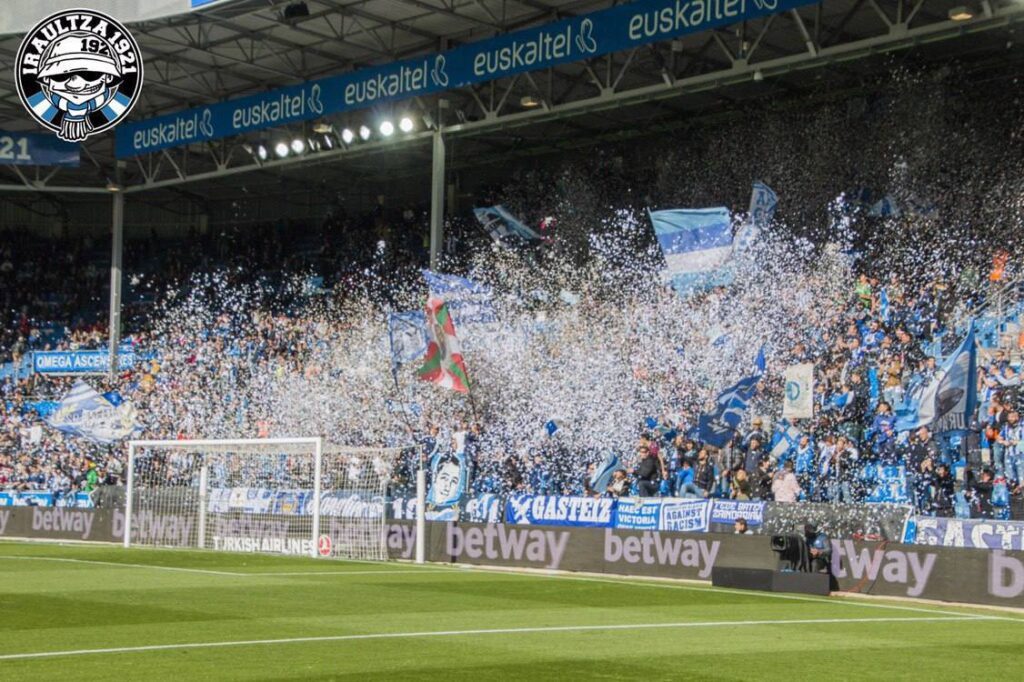
Würdet ihr uns bitte kurz die baskische Fußball- und Fanszene vorstellen? Wie lauten die Namen der großen Vereine und die der wichtigsten Ultragruppen?
Der baskische Fußball kann auf eine lange Geschichte zurückblicken und hat zwei der wichtigsten Mannschaften, was Titel und Jahre in der Primera Division angeht. Wir sprechen hier von Real Sociedad aus San Sebastian und Athletic Club Bilbao. Beide Mannschaften verfügen über eine lange Tradition auf der Tribüne und auf der Straße. Seit den 1980er Jahren hatten sie Gruppen, die berüchtigt waren, wie Herri Norte und Abertzale Sur (Athletic) und Mujika Taldea (Real Sociedad). Zusammen mit Indar Gorri aus Osasuna (Pamplona)waren dies die wichtigsten Gruppen, die die Skinhead-Bewegung innerhalb und außerhalb der Tribünen ins Leben riefen.
Im Anoeta, dem Stadion von Real Sociedad, ist heute die Bultzada die wichtigste Gruppe, die die Fans vereint. Sie hat eine große Bedeutung erlangt und ist heute eine der besten Supportergruppen. RSF Firm ist diejenige, die sich auf der Straße zu Wort meldet.
Heutzutage haben sich die Dinge geändert. Die Kurven haben sich zu echten Tifo Gruppen entwickelt, was sie zu einem Ort macht, an dem jeder Fan, der seine Mannschaft unterstützen will, seinen Platz findet. Was jedoch auf der Straße passiert, bleibt auf der Straße.
Die Eztanda Norte von Deportivo Alavés war die letzte Gruppe, die nach der Iraultza Albiazul gegründet wurde. Nichtsdestotrotz ist Mendizorroza (unser Stadion) eine Referenz, wenn wir über den Tifo sprechen. Der Zusammenschluss der verschiedenen Fangruppen war die Initialzündung für die Gründung von Iraultza1921. Die Sport Friends sind diejenigen, die auf der Suche nach Ärger sind und die vor den Heimspielen in Gasteiz, unserer Heimatstadt, stundenlang auf die Ankunft des Gegners warten.
Diese vier Gruppen sind derzeit die berüchtigtsten.
Wir müssen auch historische Gruppen wie Indar Horibeltz aus Barakaldo erwähnen, die, obwohl sie in untergeordneten Ligen spielen, allen Schwierigkeiten, die der moderne Fußball im Laufe der Jahre mit sich gebracht hat, standgehalten haben und aktiv geblieben sind.
Man sagt, die Basken leben von der Vendetta. Gibt es auch Rivalitäten zwischen den baskischen Szenen?
Normalerweise ist es eine gesunde Rivalität oder ein Streit, eine Pique. Wir können sagen, dass es keinen wirklichen Hass zwischen uns gibt. Die einzigen Probleme, die vielleicht aufgetreten sind, liegen in den Unterschieden zwischen den Gruppen. Garaitezinak ist zum Beispiel eine von uns allen gegründete Gruppe, ein Zusammenschluss baskischer Hooligans, die die baskische Nationalmannschaft unterstützen möchte, die derzeit leider noch keinen offiziellen Wettbewerb spielen kann. Abgesehen davon, dass wir für den offiziellen Status der Mannschaft und die Unabhängigkeit von Euskal Herria stehen, wurde die Gruppe gegründet, um eine überwältigende und starke Antwort auf der Straße zu haben. Wir als Basken müssen vereint sein, zumindest wenn unsere Nationalmannschaft spielt, und wir werden diese Initiative immer unterstützen.
Weiter kann ich über eine Rivalität von Alavés und Barakaldo berichten. Diese Rivalität gab es schon lange, bevor es Gruppen auf den Rängen der beiden Mannschaften gab, und wenn sie in den unteren Ligen aufeinandertrafen (was recht häufig der Fall war), gab es überall Ärger und eine ziemlich feindselige Atmosphäre gegen die Gäste.
Wie werden die Rivalitäten auf der Straße ausgetragen?
Ich schätze, dass es hier, wie überall Ärger gibt, aber man kann sagen, dass in der Liga, in der wir spielen, immer noch eine allgemeine Angst vor Niederlagen herrscht. Die historischen Gruppen sind angepasst und gehen keine Risiken ein, sie benutzen immer noch Waffen und setzen ihren Ruf nicht aufs Spiel. Es gibt Hoffnung für jüngere und neuere Gruppen, die bereit sind, etwas zu unternehmen, in kleinen Gruppen zu reisen oder sogar in die Berge zu einer vereinbarten Auseinandersetzung zu gehen.
Im Allgemeinen ist die Sache festgefahren, und hier und da kommt es zu Konfrontationen… Es ist wohl eine der trägsten und unbeweglichsten Ligen in Europa, zumindest was die großen Ligen angeht.
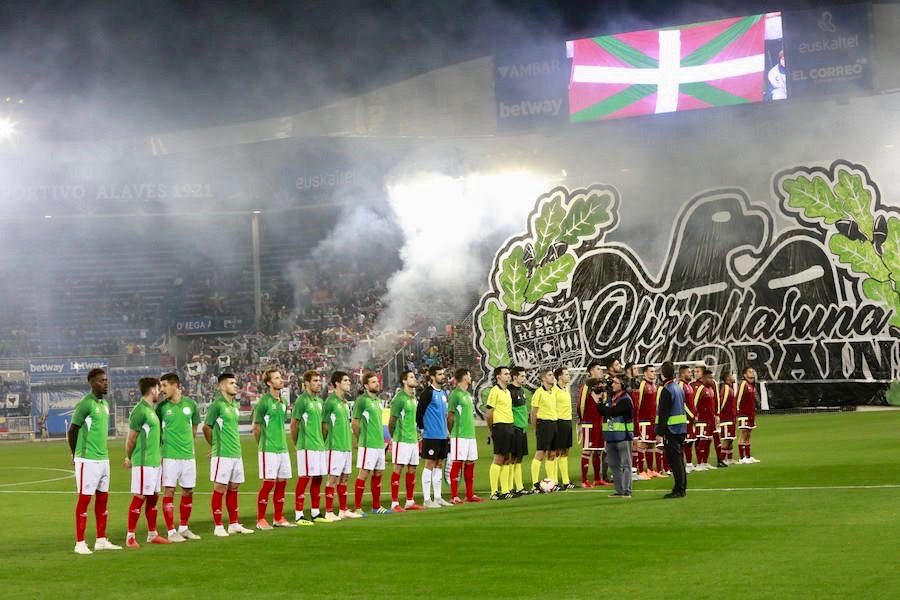
Lasst uns über euer Heimteam sprechen. Wann habt ihr angefangen, zum Fußball zu gehen? Und was bedeutet es für euch Deportivo Alavés überall hin zu folgen?
Wenn ich über Deportivo Alavés befragt werde, fallen mir viele Dinge ein. Ich verfolge den Verein, seit ich denken kann, aber es war in meiner Jugendzeit, als etwas in mir zu wachsen begann und ich unbedingt auf diese Tribüne wollte. Die D.A. ist alles für mich Freundschaft, Fußball und Brüderlichkeit.
Wie würden Sie die Mentalität im Verein und in der Fanszene beschreiben?
Die Beziehung zum Verein ist, wie in vielen Fällen, ein Pulsschlag. Es gibt bessere und schlechtere Zeiten, und der Verein weiß genau, dass eine Gruppe von Fans wie Iraultza1921 zu wertvoll für einen so bescheidenen Verein ist, deshalb werden wir mit besonderem Respekt behandelt.
Welche Freundschaften pflegt eure Kurve und um einen Überblick zu bekommen, mit wie vielen Leuten reist ihr durchschnittlich zu den Auswärtsspielen?
Die Freundschaften, die ich durch den Fußball mit Anhängern anderer Vereine geschlossen habe, sind persönlich, denn die Erfahrung hat uns gelehrt, dass es etwas Vorübergehendes ist. Ich bleibe bei den menschlichen Werten, und das ist es, was mich dazu bringt, zu reisen oder mich mit einer anderen Gruppe zu treffen.
Die Menschen, mit denen ich reise, sind sehr unterschiedlich, Menschen kommen und gehen, und die Gruppen machen bessere und schlechtere Zeiten durch.
Wie seid ihr zum ersten Mal mit der Casual Culture in Berührung gekommen und was hat dich dazu inspiriert, anders zu kleiden?
Als ich ein Kind war, hatten wir nicht die Menge an Informationen, die die jüngere Generation heute hat. Wahrscheinlich haben sie schon alles online gesehen, bevor sie überhaupt eine Tribüne betreten oder einer echten Gruppe gegenüberstehen.
Wie jedes andere Kind auch, nimmt man sich ein Beispiel an den älteren Jungs, und um 2009 herum begannen sie, ihre Stiefel und Hosenträger an den Nagel zu hängen und sich Casual zu kleiden.
Das ist dein erster Kontakt, so entdeckst du die Namen bestimmter Marken, und von da an gehst du in die Tiefe. Man sucht im Internet nach Filmen, Büchern, Dokumentarfilmen und Foren. Ich verliebte mich in die Materie, und es wurde zu einer Obsession. Als ich studierte, begann ich, das wenige Geld, das ich hatte, für neue Kleidung auszugeben. Und so gründeten wir eine Gruppierung innerhalb von Eztanda, die Glory Kids hieß. Eine Sektion, die aus 15- bis 17-jährigen Casual- und Skinhead-Kids besteht, wahrscheinlich die erste Jugend-Casual-Gruppe im Baskenland.
Es ist eine große Freude, mit einigen von ihnen heute immer noch aktiv dabei zu sein und zu sehen, dass wir immer noch verrückt nach dieser Kultur sind und unsere Freundschaft immer noch Bestand hat. Mein Freund Lamenot Damn wird wissen, wovon ich spreche.
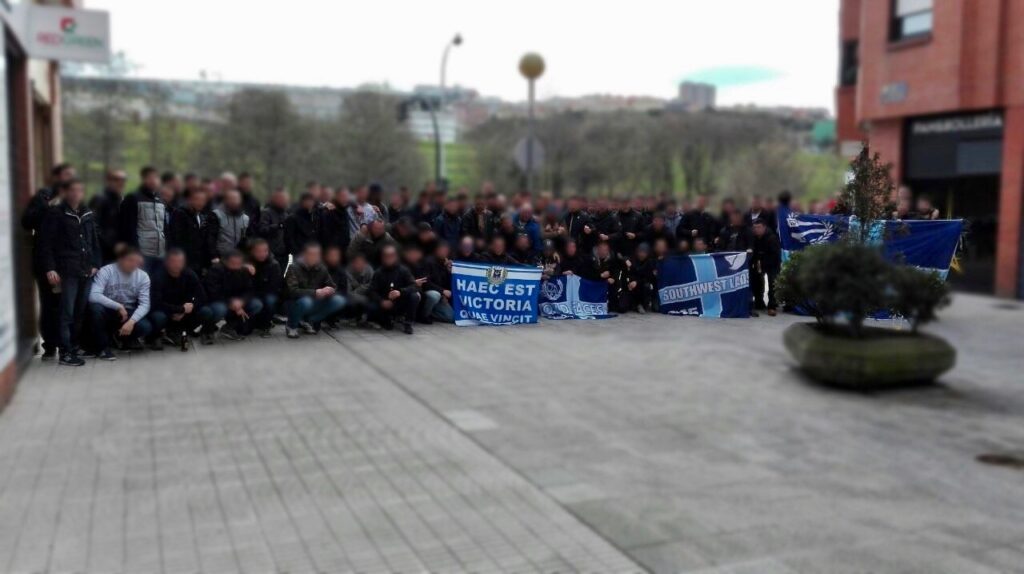
Es gibt jede Menge Bücher, Nick Loves Filme, Labels und Geschäfte, die sich den Casuals verschrieben haben. Was davon hatte den größten Einfluss auf We are Dotore?
Der erste Film, den man sich anschaut, ist Green Street Hooligans, und naja, man merkt, dass es absoluter Müll ist, wenn man zum Vergleich die ersten zwanzig Minuten Football Factory sieht. Leider gibt es in unserer Sprache keine Literatur zu diesem Thema, und erst als ich anfing, Englischkenntnisse zu erwerben, begann ich die relevanten Bücher zu lesen. Ich würde sagen, das Buch “Soul Crew“ über die Jungs aus Cardiff war hier unheimlich wichtig.
Blogs wie der auch von Sapeur OSB, inspirierte Dotore zu allem, was die Kultur betrifft. The Firm, This Is England, Supersonic von Oasis oder auch Fucking Hooligans zum Beispiel.
Was ist die Idee hinter We are Dotore und was war die Intention hinter der Gründung?
Die Hauptidee von We are Dotore war es, die Casual Culture zu erweitern, Artikel und Interviews mit Bezug zu unserer Welt hochzuladen und auch der Musik einen Raum zu widmen (Spotify-Kanal). Ein Jahr später haben wir beschlossen, unsere ersten T-Shirts als Merchandising zu entwerfen, und als wir sahen, wie gut sie ankamen, entschieden wir uns, die Produktion beim selben Hersteller zu belassen, und wir begannen, an verschiedenen Kleidungsstücken zu arbeiten, die ihr in naher Zukunft sehen werdet.
Im Moment haben wir ein T-Shirt und eine Bier-Kollaboration mit der Saltus-Brauerei herausgebracht. Das nächste Kleidungsstück wird ein italienisches Raglan-Plüsch-Sweatshirt sein. Wir sind der Meinung, dass wir uns durch die Qualität der Materialien, mit denen wir arbeiten, hervorgetan haben, und wir wollen diesen Weg weitergehen und unseren Lesern exklusive Produkte anbieten. Dafür produzieren wir in Portugal und arbeiten mit den besten Materialien. Außerdem setzen wir uns für menschenwürdige Arbeitsbedingungen der Textilarbeiter ein, was bei der Produktion in Asien nicht der Fall ist.
Andere Initiativen, die wir seit kurzem organisieren, sind Veranstaltungen, im Oktober haben wir die erste Veranstaltung zur Einführung eines T-Shirts durchgeführt. Im Dezember haben wir ein großes Event organisiert, eine authentische Party mit verschiedenen Kollaborationen. Wir werden die Zusammenarbeit vorstellen, ein Bierfass anstechen und es wird eine Ausstellung unseres guten Freundes von Chacal Store geben (ein lokales Geschäft, das auf Second Hand, Vintage und brandneue Stone Island und C.P. Company spezialisiert ist). Wir können die Veranstaltung nicht ohne eine gute Vinyl-Session beenden mit der besten Musik. Anständiger Reggae, Soul, Oi!, Punk, Ska oder Britpop, werden bei dieser fantastischen Soiree zu hören sein.
Wir hoffen, dass es die erste von vielen Partys sein wird, und wir wünschen uns, dass wir jedes Jahr eine machen. DOTORE WINTER PARTY!
Aufgrund des Zeitmangels, den wir haben, hat der Blog in letzter Zeit ein wenig gelitten, aber 2022 kommt voller Inhalt. Wir dürfen ein Interview mit euch nicht verpassen, Freunde.
Tretet ihr bei den Heimspielen eures Vereins als eigene Gruppe auf oder ist es ein reines Freundschaftsprojekt?
Nein, jedes Dotore-Mitglied hat seine eigene Gruppe und wir legen Wert darauf, mit ihnen präsent zu sein. Man kann Dotore-Fahnen und Banner bei unseren Veranstaltungen oder bei anderen Festivals sehen, zu denen wir mit unserer „Mannschaft“ gehen.
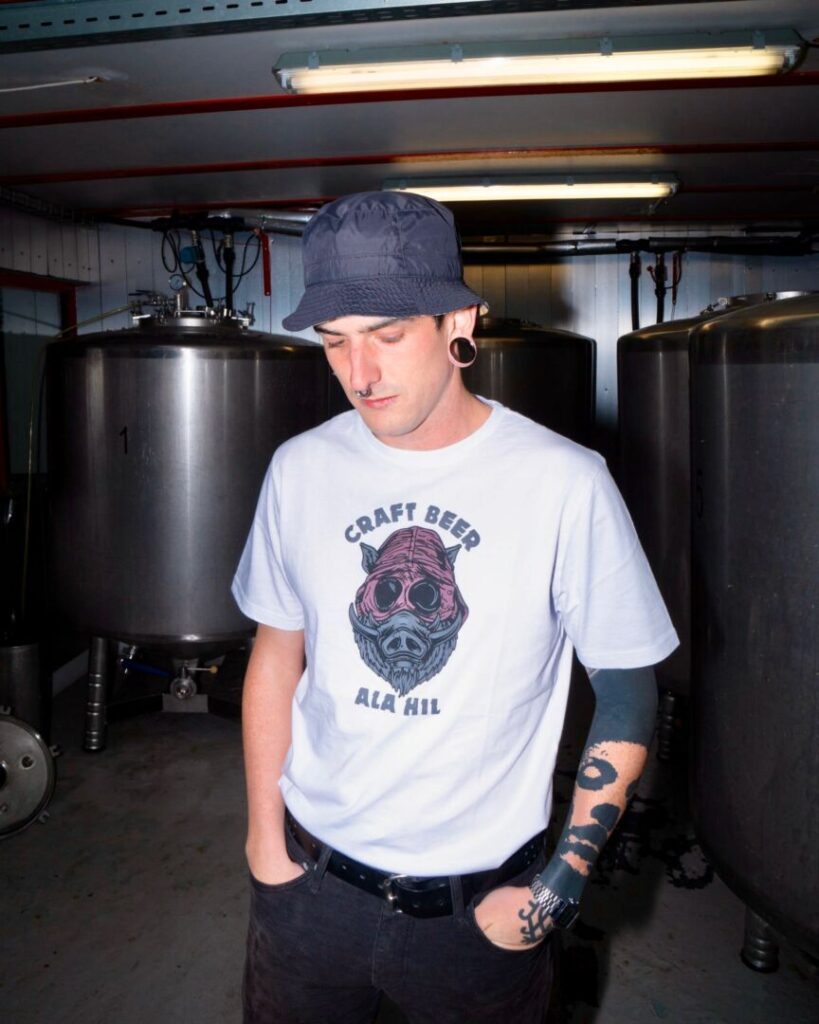
Wie würdet ihr den baskischen Einschlag auf die Casual Culture beschreiben?
Die Casual Culture im Baskenland ist etwas, das sich heute noch entwickelt, man kennt sie, aber nicht in der Tiefe. Eines der Hauptziele des Blogs ist, dass die Basken all das in unserer Sprache pflegen können.
Jede Auswärtsfahrt hat ihren eigenen Soundtrack, welche Artists und Songs finden wir auf eurer Playlist?
In unseren Playlists ist fast alles zu finden, verschiedene Genres in verschiedenen Sprachen.
Auch Musik für verschiedene Stimmungen. Aber unsere Favoriten sind, wie du schon sagtest, die On Tour-Listen, die Musik, die wir auf einer Busfahrt in die Hölle hören würden, Musik zum Durchdrehen, zum Ausrasten. Viel Punk und Oi!, auch einige Britpop- und Revival-Mod-Hymnen.
Wir haben schon immer britische Oi! gemocht, Klassiker wie Cock Sparrer, Cockney Rejects, Blitz oder The Crack. In unseren Listen dürfen The Jam, lässige Referenzen, die Punk-Attitüde und das smarte Outfit nicht fehlen. Stone Roses, Artic Monkeys, Slaves, Viagra Boys…
Und natürlich wird es immer einen Platz für die baskischen Bands geben, die klassischen und die neuen, aufstrebenden. Delirium Tremens, Cicatriz, Kaleko Urdangak, Brigade Loco, Tatxers, Rotten XIII…
In Deutschland haben wir jetzt die vierte Corona-Welle, die schwerer ist als alles zuvor. Wie ist die Situation in Gasteiz und wie hast du die letzten 18 Monate ohne Fußball überstanden?
Wenn ich ehrlich bin, weiß ich gar nicht, wie viele Wellen wir schon hinter uns haben. Es ist eine Sache, die mich krank macht und bei der ich wegschaue. Die 18 Monate ohne Fußball waren seltsam, wie eine totale Unterbrechung, aber wir haben sie genutzt.
„Wie sehr lieben wir es, am Sonntagmorgen früh aufzustehen, unser Outfit auszusuchen und in einen Bus zu steigen, der direkt in die Hölle fährt.“ Na dann mal raus mit der Sprache, wie sieht euer Matchday Outfit für eine solche Fahrt in die Hölle aus?
Das hängt natürlich von der Jahreszeit ab. Im Sommer tragen wir gerne Bermudashorts, einen Bucket Hat und Trainers, um in Aktion zu treten. Im Winter könnten ein Parka, eine Wollmütze, ein Schal und Lederschuhe oder Adidas-Turnschuhe mit Cordura die perfekte Kleidung sein.
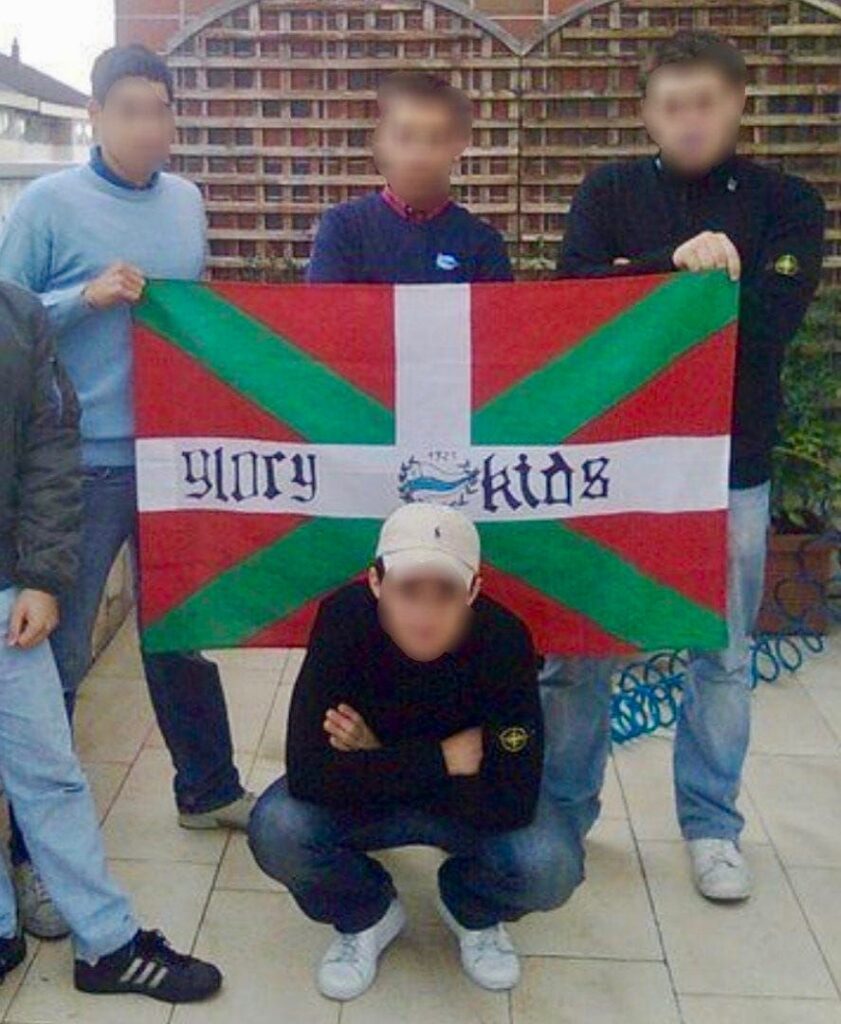
Lasst uns über die Marken sprechen. Im Laufe der Jahre sind ein paar Marken verschwunden und ein paar neue aufgetaucht. Was war die größte Überraschung und von welcher Entwicklung wart ihr vielleicht enttäuscht?
Kway hatte in der Vergangenheit einen schweren Stand und erlebte in den letzten Jahren einige Tiefpunkte, bis sie jetzt wieder stark zu sein scheinen. Als ich anfing, war ich ein großer Fan von Herni Lloyd, ich liebte es und habe immer noch ein paar Sachen von vor zehn Jahren, aber es war eine große Enttäuschung, dass sie sich neu erfinden mussten und die Essenz verloren haben.
Vor ein paar Jahren, als Weekend Offender seine Hochkonjunktur hatte, habe ich viel von ihnen gekauft, aber sie haben etwas vergessen, das meiner Meinung nach ursprünglich ist: die Qualität.
Da können wir nicht so richtig zustimmen, denn gerade WO hat in den letzten Jahren in Sachen Qualität sehr aufgeholt. Gibt es auch baskische oder spanische Casual Culture Marken, die wir im Auge behalten sollten?
Vor ein paar Jahren haben wir angefangen, Marken wie Loreak Mendian oder Ttilika zu tragen, und um ehrlich zu sein, sind das beides wichtige Marken hier, auch wenn man sie in der Freizeit nicht mehr wirklich sieht. Und natürlich Dotore!
Welche drei Paar Turnschuhe sind für Sie unverzichtbar?
Ich muss mich für die Adidas Spezial entscheiden, ich habe eine New Order Special Edition, die mich jedes Mal umhaut. Außerdem New Balance 1500 oder Clarks Wallabee.
Ich mochte schon immer die „Favourite Five“ von Proper Mag. Würdest du gerne ein paar kurze Fragen beantworten? Bevorzugtes…
Kleidungsstück: Parkas und Gürtel
Bücher: Ich lese in letzter Zeit nicht so viel, wie ich gerne würde, aber das letzte war „ZeroZeroZero“ von Roberto Sabiano.
Musik: Unmöglich, sich für einen Song oder eine Band zu entscheiden, aber The Jam, Cock Sparrer oder die Spitfires.
Film: Trainspotting, This Is England, Clockwork Orange.
Etwas anderes: Ich habe meine Tage damit verbracht, über Essen und Alkohol nachzudenken. Am liebsten würde ich am Strand Ceviche essen und dazu ein Hazy IPA trinken.
Was steht bei We are Dotore als nächstes an und gibt es bereits große Pläne für 2022?
Wir haben große Pläne für 2022. Als Erstes wollen wir unseren Blog mit dem bestmöglichen Inhalt wieder aufnehmen. Das wöchentliche Veröffentlichungsverhältnis soll beibehalten werden. Interviews mit starken Bands aus dem Baskenland wie Rotten XIII oder Vulk, ein spezieller Artikel über die Entwicklung der Ästhetik unseres Stadions (Mendizorrotza). Außerdem ein Interview mit einem KOTS-Kämpfer (King of the Streets) und weitere Überraschungen.
Was die Kleidung betrifft, so produzieren wir weiterhin und erstellen auch Muster, um coole Kleidungsstücke zu erhalten. Im Sommer werden wir ein einzigartiges Dotore-Paket anbieten!

Es war uns eine große Freude, euch bei uns zu haben. Wie ich bereits eingangs erwähnt habe, liebe ich das Baskenland und hatte das Glück, mehrere Orte und Fußballstadien bereits besuchen zu können.
Ich bin sehr gespannt, wie es mit euch weitergeht und wünsche euch alles Gute für die Zukunft. Bleibt gesund, smart dressed, radikal am Tresen und umtriebig auf der Straße. Die letzten Worte gehören euch
Das Wichtigste zuerst: Wir möchten uns bei euch für das Interview und die Möglichkeit bedanken, uns in Deutschland zu präsentieren, eine große Ehre.
Wir respektieren die Mentalität von Sapeur OSB und die Arbeit, die ihr in die Verbreitung dieser Subkultur steckt, die wir so sehr lieben. Wir sind zwei Projekte, die Hand in Hand gehen. Es macht uns wirklich stolz, dass ihr so über unser Land sprecht. Ihr seid herzlich nach Gasteiz eingeladen, und auch wenn ich bisher nur Berlin besucht habe, würde ich euch gerne besuchen und Frankfurt kennenlernen. Stay smart and rebel!
We are Dotore
Homepage Instagram
— The Interview in English —
The Basque Country is one of the oldest and strongest cultures in Europe. It comprises the region in the north of Spain, on the Bay of Biscay, at the western end of the Pyrenees, on the border between southern France and Spain. The culture and origins differ in many ways from the rest of Spain and from the Spanish way of life. The Basques are very proud of their traditions, language and culture, which was forbidden to practice for many years.
Older readers will be familiar with the bloody Spain-ETA conflict, an armed and political conflict from 1959 to 2011 between Spain and the Basque National Liberation Movement, which sought independence from Spain and France. Unfortunately, this must be mentioned in order to understand the soul of the Basque Country, which also lives and is proudly displayed in football.
Surrounded by a privileged landscape with charming old villages that contrast with the old industrial cities like Bilbao, transformed into postmodern cities by emblematic architecture, there is a vibrant Basque football scene and fan culture thanks to some big and small clubs.
We had a chat with We are Dotore, a casual culture collective from Gasteiz whose members keep it real with the city-based club Deportivo Alaves. Because of my personal soft spot for the Basque Country, which I have already been able to visit once or twice, I was very curious to find out what the Basque flavour of casual culture looks like. Because as you know, the Basques live by the vendetta and I thought it could be a very interesting topic for you too.
Mila esker We are Dotore and enjoy the interview.

Kaixo mate, please introduce you short to our reader. Who are you and what do you do?
We are Dotore, enthusiasts of proper dressing, beer, music and trouble from the Basque Country. This is our way of life and we try to transmit it from our blog (wearedotore.com).
First of all, let‘s start with your name. What does it mean and why did you choose it?
Dotore means elegant in our language, Euskera. A special word from a special language.
The Basque Country has a very special history. For our readers who are not familiar with Euskal Herria, how would you introduce or tell your homeland and ist history?
We could speak for hours about our history, but in summary… The Basque Country is a territory between Spain and France that has been oppressed for years, a nation in which its culture and language have resisted the unthinkable. That is why us, from our blog, we are always going to encourage, reclaim and defend these two facts. Our language is the only available link to freedom for us, that’s why it is essential that Euskera is the main language in our project.
You say on your blog that the Basques have their very own way of experiencing football. Do you feel like explaining this in more detail?
That’s how we presented ourselves to the world when we started the blog. This is something that you notice every time you step into any terrace from the Basque Country. It doesn’t matter which field or city you go to, you will find our common emblems and chants in Euskera. There are political claims and the people who belong to this groups have got firm ideological basis in common. You know that the person next to you is also a comrade, which makes these values unbreakable.
When I think st he organised Basque fan scenes st he 1980s and 1990s, the first thing that comes to mind st he SHARPS who stand for independce and anti-racism. The antagonist were, for example, the Ultras of Real, Atletico or Betis.
What st he situation today, or in other words, what are the similarities and differences between the Spanish and Basque Ultras today?
That’s it, during those days the common thing to be found on the terraces were bombers and boots. For some years now most of the fans had left the skinhead esthetic and you could see the looks were changing, the first casuals arrive. Even so, the principles and the attitude are still the same, even if that aggressive esthetic is gone the Basques are still strong in the streets. The same thing happens with the fascist groups that you mentioned, they `‘casualize‘‘ and they leave those evident looks behind. Just as they chose to copy some skinhead brands back in the day, they also did the same with the casual brands that we see today.
In conclusion, the differences are still the same and the hate remains.

Would you like to give us a brief introduction ft he Basque football and fan scene? What are the names ft he big clubs and the most important ultra groups?
The Basque football has got a long history, and it has got two of the most important teams regarding titles and years on the main league. We are speaking about Real Sociedad and Athletic Club Bilbao. Both teams count on with a long terrace tradition and referents in the streets. Since the 80s, they had groups that have been infamous, such as Herri Norte and Abertzale Sur (Athletic), and Mujika Taldea (Real Sociedad). Hand in hand with Indar Gorri from Osasuna, these were the main groups that started the skinhead movement inside and outside the terraces. Nowadays things have changed and the back terraces are turning into real animation groups, which makes them a place where any fan willing to support their team has got a place. What happens in the streets stays in the streets and the hooligans have continued to gather on the terraces. On the other hand, in Anoeta, Real Sociedad’s stadium, Bultzada is the main group that has united the supporters. They’ve taken a significant importance and nowadays is one of the best animation groups. RSF Firm is the ones having their say on the streets, and Mujika taldea disappears, that can I say.
Eztanda Norte from Deportivo Alavés was the last group that was founded, after Iraultza Albiazul. Nonetheless, Mendizorroza (our stadium), is a state reference if we talk about animation. The union of the different supporter groups created the spark that brought Iraultza1921 to life. Sport Friends are the ones that travel looking for trouble and the ones who spend long hours tailgating and waiting for the opponents arrival before the home matches in Gasteiz.
These four groups that are currently alive are the most notorious at the moment and we can say that they all share the same way, according to politics and ideas at least.
We also need to mention historic groups like Indar Horibeltz from Barakaldo, that in spite of playing minor leagues, they’ve stood tall and active against all the difficulties that modern football brought over the years.
They say the Basques live by the vendetta. Are there also rivalries among the Basque scenes?
Usually it is a healthy rivalry or quarrel, a pique. We can say that there isn’t a real hate between us, the only problems that may have arisen are because of differences between the groups. Garaitezinak is a group founded by all of us, for example, an agroupation of Basque hooligans looking to support the Basque national team, which unfortunately still can’t play any official competition at the moment. Apart from fighting for the officialdom of the team and the independence of Euskal Herria, the group was created in order to have an overwhelming and strong answer in the streets. We as Basque must be united, at least when our national team plays, and we will always support this initiative.
I can speak about some past hate between Alavés and Barakaldo. This rivalry existed long before there were groups inside the terraces on each team, and when they used to meet in lower divisions (quite frequently), there was aggro and trouble everywhere, hate chants against the rivals and a pretty hostile environment against the visiting end.
How are the rivalries played out on the streets?
I guess trouble here is like everywhere else, but I can tell you that in the league that we play there is still a generalized fear of losing. The historic groups are accommodated and don’t take risks, they still use weapons and don’t put their reputation on the line. There’s hope for younger and newer groups, who are willing to make a move, travel in small numbers or even go to the mountain to an agreed fight.
In general the thing is stuck, and confrontation appears here and there… It might be one of the most idle and motionless leagues in Europe, at least from the big leagues.

Let´s speak about your home team. When did you start going ot he football? And what does it mean for you to follow Deportivo Alaves through and through?
When I’m asked about Deportivo Alavés lots of things come to my mind. I follow it since I can remember,but it was in my adolescence when something inside of me started to grow and I really wanted to get into that terrace. The D.A. is everything to me, friendship, football and brotherhood.
How would you describe the mentality of the club and the fan scene?
The relationship with the club, as in many cases, it’s a pulse. There’s better and worse times and the club knows well that a group of fans like Iraultza1921 is too valuable for such a modest club, that’s why we are treated with special respect.
What friendships do you maintain and to get an overview, with how many people do you travel ot he away games on average?
The friendships that I’ve made through football with supporters from other clubs are personal, due that the experience has taught us that brotherhood between firms is something temporary. I stay with the human value, and that’s what makes me want to travel or meet with any other group.
The people I travel with varies a lot, people come and go and groups go through better and worse times. What I know is that I travel with the best, who are always going to face up to anything and anyone. Fuck the numbers!
How did you first get in touch with casual culture and what inspired you to start?
When I was a kid we didn’t have the amount of information that the newer generation have got nowadays. Probably they’ve seen everything online before even stepping into a terrace or facing a real group face to face.
As any other kid, one takes example from the older lads, and around 2009, they started to hang up their boots and braces for a more casual look. That’s your first contact, that’s how you discover the names of certain brands and you start to go in depth from there. You look for films, books, documentaries and clobber webpages on the internet. I fell in love with it, and it started to become an obsession. When I was studying I started to spend the little I had on some new garment. And that’s how we founded a section inside of Eztanda, named Glory Kids. A section formed by 15 to 17 year old casual and skinhead kids, probably the first youth casual group from the Basque Country.
It is an honour to continue hand in hand with some of them today, and see that we are still crazy for this culture and friendship. My friend Lamenot Damn will know what I’m talking about.

There are batches of books, Nick Loves‘ movies, labels and shops who are dedicated ot he Casuals. What of those had the most influence on We are Dotore?
The first movie that you watch is Green Street Hooligans, and well, you notice it’s absolute rubbish when you watch 20 minutes of Football Factory for the first time. And I posted it once, you aren’t dotore until you know every dialog from this movie by heart. Unfortunately, there’s no literature on the matter in our language, and it wasn’t until I started to gain some English skills when I started to read. I would say the ‘’Soul Crew’’ book about the Cardiff lads.
Blogs like yours too. Dotore inspires on everything around the culture. The Firm, This Is England, Supersonic from Oasis or Fucking Hooligans too for example.
What st he idea behind We are Dotore and what was the intention behind ist foundation?
With We are Dotore, the main idea was expanding the casual culture, uploading articles and interviews related to our world and also dedicating a space to the music (Spotify channel). A year later we decided to create our first T-shirts as merchandising, and seeing the good reception that they had we chose to keep the production with the same manufacturer and we started to work on different garments that you’ll be able to see in a close future. Right now we’ve released a T-Shirt and beer collaboration with Saltus brewing coop. The next garment will be an Italian raglan plush sweatshirt that will leave you speechless. We think that thanks to the quality materials that we work with we have distinguished ourselves, and we want to continue following this path, offering exclusive products to our readers. For this, we produce in Portugal and we work with the best materials, apart from betting for dignified labor conditions of textile workers, something that if you produce in Asia it isn’t respected.
Other initiatives that we briefly started to organize are events, in October we did the first one to launch a t-shirt. In December we‘ve organized a big one, an authentic party with different collaborations. We will present the collaboration, plug a beer barrel and there will be an expo from our good friend from Chacal Store (a local shop specialized in second hand, vintage and brand new Stone Island and C.P. Company at the best prices). We can’t finish the event without a good Vinyl session with the best music. Proper Reggae, Soul, Oi!, punk, ska or Britpop will be heard in what will be a fantastic soiree.
We hope that it will be the first of a lot of parties, and we wish to make one for every year station. DOTORE WINTER PARTY!
Due to the lack of time that we’ve got, the blog has suffered a little drop lately, but 2022 comes full of content. We cannot miss an interview with you, friends.
Do you appear as a separate group at your club‘s home games or is it just a friends project?
No, every dotore member has got its own group and we priorize to be present with them. You can see Dotore flags and banners in our events or in other festivals that we go to with our `‘crew‘‘.

How would you describe the Basque take on the casual culture?
The casual culture in the Basque lands is something that is still developing today, people know it but not in depth. One of the blog‘s main objectives is that the Basque people can nurture all of it in our language.
Every away tour has ist own soundtrack, which artists and songs do we find on your playlist?
In our playlists you can find almost everything, different genres in different languages.
Music for different moods too. But our favourites as you mentioned are the On Tour ones, the music that we would blast on a bus road to hell, music to go mental and raze and obliterate. Lots of punk and Oi!, also some Britpop and revival mod anthems.
We’ve always liked British Oi!, classics such as Cock Sparrer, Cockney Rejects, Blitz or The Crack. In our lists, we never miss The Jam, casual referents, the punk attitude and smart dressing. Stone Roses, Artic Monkeys, Slaves, Viagra Boys…
And of course, there will always be a place for the Basque bands, the classic and new upcoming ones. Delirium Tremens, Cicatriz, Kaleko Urdangak, Brigade Loco, Tatxers, Rotten XIII…
In Germany we now have the fourth Corona wave, which is heavier than anything before. How st he situation in Gasteiz and how did you get through the last 18 months without football?
If I’m honest with you, I don’t even know how many waves we’ve been through already, it’s a matter that makes me sick and I look the other way. The 18 months without football have been strange, like a total disconnection, but we have taken advantage of it and nurtured ourselves from other aspects regarding this culture, and we’re back stronger than ever.
„How much do we love getting up early on a Sunday morning, choosing our outfit and getting on a bus that goes straight to hell.“ So here eg o, what‘s your matchday outfit for such a trip to hell?
It varies depending on the time of the year, of course. During summer we like to wear bermuda shorts, a bucket hat and trainers to get into action. During winter the perfect attire could be a Parka, a wool hat, a scarf and shoes or some Adidas trainers with Cordura.

Let‘s talk about the brands, mate. Over the years a few brands disappeared and a few new ones came up. What was the biggest surprise and from which development you were maybe disappointed?
Kway hit hard in the past and had some low moments the last years until now, that they seem to be strong again. When I started, I was really into Herni Lloyd, I loved it and I still keep some stuff from 10 years ago, but I could define it as a disappointment now that they reinvented themselves towards a different line and they’ve lost the essence lately.
A few years back when Weekend Offender had its boom I used to buy a lot from them, but they’ve forgotten something that in my opinion it’s primordial, the quality. Raincoats that break as easy as smoking paper, shitty zippers, poor cotton…
Unfortunately, I can’t agree with Weekend Offender, as the brand has clearly caught up in terms of quality, especially in recent years.
Are there also Basque or Spanish Casual Culture brands that we should keep in mind?
I will speak about the Basque ones. A few years ago we started to wear some brands such as Loreak Mendian or Ttilika, and to be honest, they’re both important brands around here, although they’re not really seen around the casual people anymore. And of course, Dotore!
Which three pairs of trainers are essential for you?
I have to go with the Adidas Spezial, I’ve got a New Order special edition that blows me away every time. Also New Balance 1500 or Clarks Wallabee.
I always liked Proper Mag’s „Favourite Five“. Would you like to answer a few quick questions in two or three sentences? Favourite…
Item of Clothing: Really into parkas and belts.
Books: I don’t read as much as I’d like to lately, but the last one was „ZeroZeroZero“ from Roberto Sabiano.
Music: Impossible to choose a song or band, but The Jam, Cock Sparrer or the Spitfires.
Film: Trainspotting, This Is England, Clockwork Orange.
Something else: I spent my days thinking about food and booze. I’d love to be on the beach having some ceviche accompanied with a Hazy IPA.
What‘s next for We are Dotore and are there already big plans for 2022?
We’ve got big plans for 2022. The first thing is to resume activities on our blog with the best content as possible. Respecting the week publishing ratio. Interviews with strong bands in the Basque Country such as Rotten XIII or Vulk, a special article about the development of the aesthetics of our stadium (Mendizorrotza). Also an interview with a KOTS fighter and more surprises.
In regard to clothing we are still producing and also creating samples to achieve cool garments. In summer we will have a unique dotore pack!

It was a great pleasure to have you with us. As I mentioned at the beginning, I love the Basque Country and have been lucky enough to visit several places.
I am very curious to see how things will continue with you and wish you all the best for the future. Stay healthy, smart dressed, radical at the bar and on the street. The last words are yours. Say whatever you want to say.
First things first, we want to thank you guys for the interview and the chance of presenting us in Germany, quite an honour. We respect your mentality and the work you put into spreading this culture that we love so much, we are two projects that go hand in hand. It really makes us proud that you speak like you do about our land. You’re more than invited to Gasteiz, and even if I only have visited Berlin, I’d love to pay you a visit and get to know Frankfurt. Stay smart and rebel! LONG LIVE CASUALS!
